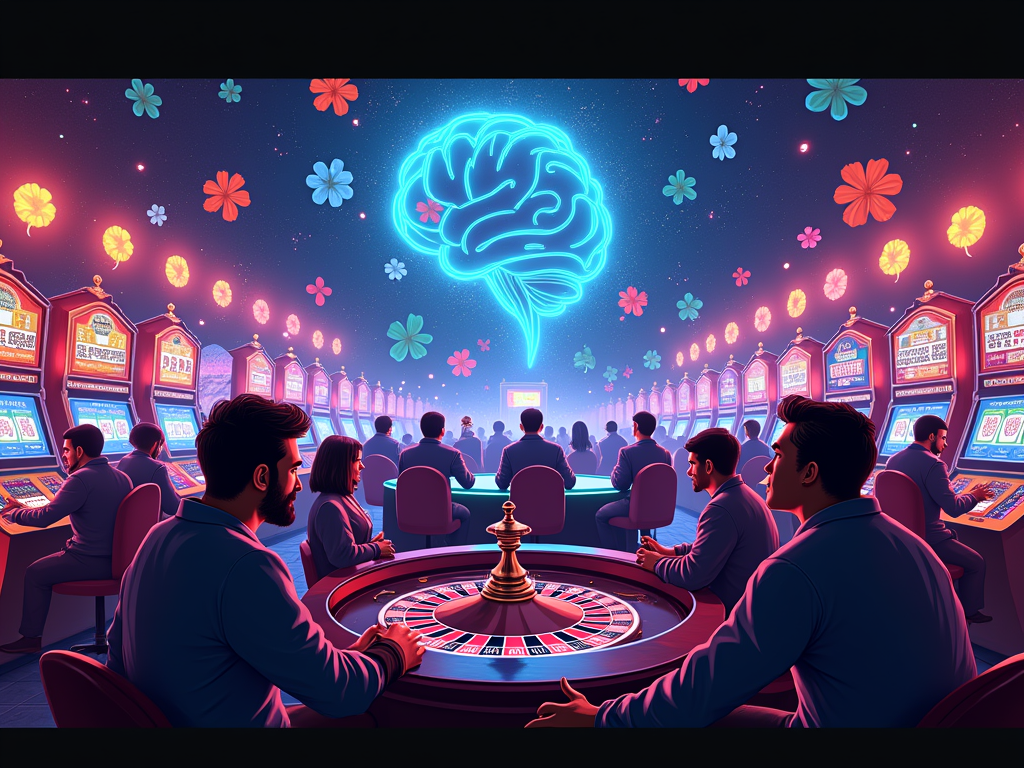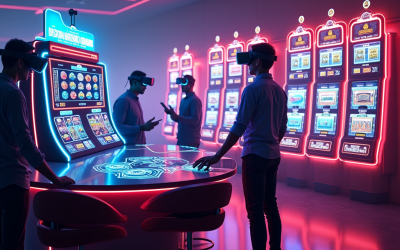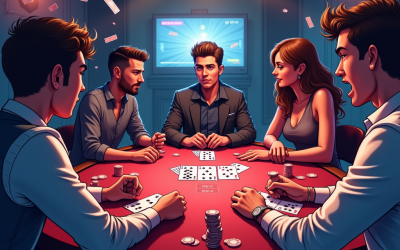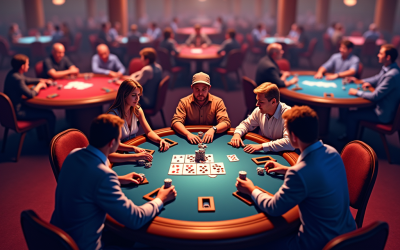The Psychological Impact of Casino Games on the Brain
Casino games create powerful effects on the brain’s reward system, triggering dopamine releases during both wins and the anticipation of results. Each game type activates specific psychological responses—slots dazzle with lights and sounds, while poker demands strategy and social awareness.
Key Takeaways
- The brain releases dopamine during both winning and the anticipation of potential wins, making the gameplay experience inherently rewarding.
- Near-misses activate reward centers almost as strongly as actual wins, encouraging continued play.
- Strategic games like poker appeal to skilled players by combining psychology, mathematics, and social dynamics.
- Slot machines use carefully engineered sensory stimulation, generating 70-80% of casino revenue.
- The low entry cost and extended anticipation period of lottery games tap into powerful fantasies of life-changing wins.
Game-Specific Brain Responses
I analyzed how different games target distinct reward pathways in the brain. Slots rely on sensory overload with flashing lights, celebratory sounds, and frequent small wins to maintain engagement. Poker satisfies deeper psychological needs through competition, skill development, and social interaction. The lottery capitalizes on hope and imagination with minimal investment required.
The Cycle of Engagement
This understanding of casino psychology reveals why games maintain such strong appeal. The combination of immediate rewards, near-misses, and anticipated wins creates an engaging cycle that keeps players interested and coming back for more.
Why We Can’t Resist the Dopamine Rush of Gambling
The brain’s reward system plays a powerful role in making casino games so captivating and thrilling. Dopamine, our brain’s feel-good chemical, surges not just when we win, but during the entire anticipation phase before seeing the outcome.
Understanding the Brain’s Response to Gambling
I’ve found that the most addictive aspect of gambling isn’t necessarily winning – it’s the anticipation of possibly winning. This explains why online slots remain incredibly popular, as each spin creates a brief moment of excitement and possibility.
The unpredictable nature of gambling rewards creates what psychologists call a variable ratio reinforcement schedule. This means you can’t predict when you’ll win, making the activity more engaging than if rewards came at regular intervals. Think about how much more exciting a game of roulette is compared to earning a regular paycheck.
Here’s how different elements fuel our gambling drive:
- Near-misses activate reward centers in our brains almost as strongly as actual wins
- The illusion of control makes us feel we can influence random outcomes
- Personal rituals and superstitions give a false sense of power over results
- Quick feedback loops between betting and outcomes keep us engaged
- Social elements in games like poker add extra layers of psychological reward
The near-miss effect is particularly fascinating. When you almost hit the jackpot or your blackjack hand comes up just short, your brain releases dopamine similarly to an actual win. This chemical response pushes you to try “just one more time.”
The combination of random rewards and personal rituals creates a powerful psychological cocktail. I’ve noticed players developing specific habits – from lucky charms to timing their bets – despite these having no real impact on their chances of winning. This false sense of control makes games like baccarat feel less random and more skill-based than they actually are.
These psychological mechanisms work together to create an experience that can be difficult to resist. The random nature of rewards, combined with near-misses and personal rituals, triggers dopamine releases that keep players coming back for more.
The Science Behind Slot Machine Addiction
Sensory Engineering and Player Psychology
The fascinating pull of slot machines isn’t random – it’s carefully crafted. Every flash, chime, and celebration you experience while playing various types of slot machines is specifically designed to trigger pleasure responses in your brain.
Slot machines stand out as the most popular casino game option, generating 70–80% of casino revenue in the U.S. This dominance stems from their perfect blend of simplicity and sensory stimulation. Unlike strategy-heavy games, slots let you place hundreds of bets hourly with just the push of a button.
The psychological hooks of slot machines include:
- Carefully calculated sound frequencies that signal wins and near-misses
- Strategic light patterns that create an immersive atmosphere
- Instant gratification through rapid play cycles
- Visual celebrations that make small wins feel significant
- Near-miss effects that keep you believing a big win is close
Popular games like Wheel of Fortune and Megabucks use these elements masterfully. The house edge typically ranges from 5–10% or higher, but the machines’ engaging feedback loop keeps players invested despite the odds.
Think about that satisfying chime when symbols align – it’s not just a sound, it’s a reward trigger for your brain. Even near-misses activate reward pathways, as your brain registers them as “almost winning” rather than losing. The machines maintain this perfect balance of wins, losses, and almost-wins to keep you playing just one more spin.
These techniques work equally well in both physical and digital formats. Whether you’re pulling a mechanical lever or tapping a touchscreen, the core psychological principles remain unchanged. The instant accessibility combined with constant sensory rewards creates a uniquely appealing gaming experience that’s hard to match on the casino floor.
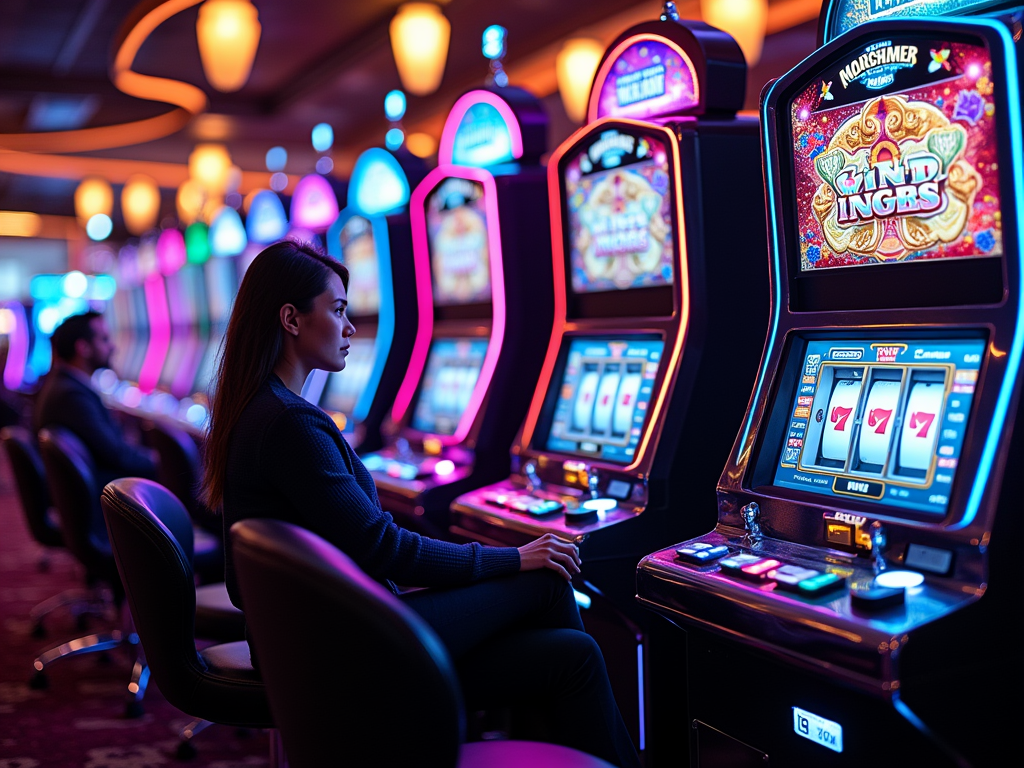
Why Strategic Games Like Poker Draw Skilled Players
I’ve noticed that strategic casino games create a magnetic pull for players who love using their minds as much as testing their luck. Poker stands out as the ultimate strategic challenge, combining psychology, mathematics, and social dynamics into one thrilling package.
The Appeal of Lower House Edge Games
Strategic games offer something special — the chance to tilt the odds in your favor through skill and knowledge. Blackjack with basic strategy has an impressively low house edge of around 0.5%, making it particularly attractive to analytical players. This means your decisions directly impact the outcome, unlike games of pure chance.
The intellectual stimulation comes from multiple angles in these games:
- Calculating probabilities and odds in real-time
- Reading opponents’ body language and betting patterns
- Making split-second decisions under pressure
- Managing your bankroll strategically
- Adapting your strategy based on table conditions
The Social Dynamics of Strategic Gaming
While slots can feel isolating, strategic games create an electric atmosphere of competition and camaraderie. Baccarat brings sophistication and social interaction to the gaming floor, while poker rooms buzz with conversation and psychological warfare.
The social element adds layers of complexity and entertainment. I’m consistently amazed by how different players approach the same situation — some rely on math, others on intuition, and the best combine both. This human element transforms each session into a unique experience where your decisions matter and your skills can shine.
The strategic depth of these games also creates a natural progression path. You can start with basic strategy in blackjack, then advance to card counting. In poker, you might begin with simple Texas Hold’em concepts before exploring the nuances of Omaha or tournament play. This learning curve keeps players engaged and rewards dedication to improvement.
The combination of skill, strategy, and social interaction makes these games particularly appealing to players who want more than just luck-based entertainment. Whether you’re calculating pot odds in poker or splitting pairs in blackjack, each decision becomes a puzzle to solve, creating an engaging mental challenge that pure chance games simply can’t match.
The Hypnotic Appeal of the Roulette Wheel
The spinning roulette wheel stands as one of the most magnetic attractions in any casino. I’ve noticed how players gather around the roulette table, drawn by its perfect blend of simplicity and sophistication.
Understanding the Psychological Hooks
The visual drama of the spinning wheel creates a powerful psychological anchor. That little white ball dancing around the wheel builds anticipation with each revolution, making your heart race as it slows down. This sensory experience transforms a simple betting game into an emotionally charged event.
The beauty of roulette lies in its flexible betting structure. I’ve found that new players feel comfortable starting with straightforward outside bets – choosing red or black, odd or even. These 50/50 choices provide a gentle entry point into the game, while the 35:1 payout on single numbers attracts those seeking bigger thrills.
Here’s how different betting options appeal to various player personalities:
- Conservative players stick to even-money bets, valuing the higher win probability
- Risk-takers gravitate to single number bets, chasing those exciting big wins
- Strategic players mix bet types, balancing risk and potential rewards
- Pattern seekers track previous results on the display board
Many players fall into the trap of the gambler’s fallacy – that infamous psychological quirk where you think past results influence future spins. I’ve watched countless players carefully noting down numbers, convinced that after several reds, black “must be due.” This mistaken belief drives betting patterns despite each spin being completely independent.
The Martingale betting system showcases another fascinating psychological element. This strategy, where players double their bet after each loss, appeals because it seems logical – you’ll eventually win back losses plus profit. The system’s straightforward nature makes it psychologically satisfying, even though it can’t overcome the house edge.
The combination of different casino games adds variety, but roulette’s hypnotic quality sets it apart. That perfect marriage of visual spectacle and betting options creates an experience that pulls players in and keeps them engaged.
The game’s social aspect adds another layer of appeal. Players share the excitement of wins and empathize with losses, creating a communal atmosphere that enhances the overall experience. I’ve seen complete strangers high-five each other after a successful spin, highlighting roulette’s unique ability to create instant connections.
Chasing Life-Changing Lottery Dreams
The allure of lottery games taps into our deepest desires for financial freedom and instant wealth. Much like progressive slot machines that offer massive jackpots, lotteries captivate players with the promise of transformative wins.
The Psychology of Lottery Appeal
The widespread coverage of jackpot winners in newspapers, TV shows, and social media creates a powerful psychological effect. When I consider why lotteries hold such strong appeal, it’s clear that the constant stream of success stories makes winning feel within reach — even though Powerball odds stand at a staggering 1 in 292.2 million.
The minimal investment required makes lottery participation particularly enticing. For just $1–2, players can buy a ticket and enjoy hours or days of anticipation. This waiting period between purchase and drawing is crucial to the game’s appeal. I’ve noticed how this delay creates space for players to imagine their perfect lives after winning — planning dream homes, luxury vacations, or helping family members.
Here’s what makes lotteries psychologically compelling:
- The availability heuristic leads players to remember big winners rather than countless losing tickets
- Low entry costs remove financial barriers to participation
- Extended waiting periods fuel wishful thinking and positive fantasies
- Fast-paced variations like Keno provide quick-hit excitement
- Regular exposure to winner stories creates false perception of winning probability
Popular games like Powerball and Mega Millions have mastered this psychological formula. Much like other casino games that create excitement, they combine accessible gameplay with life-changing stakes.
The psychology behind lottery games mirrors what I’ve observed in high-stakes table games like baccarat — the thrill comes from that moment of possibility, when any outcome seems achievable. Even though the odds are extremely unfavorable, the minimal cost of entry makes it easy for players to justify “taking a chance” on transforming their lives with a single lucky ticket.

Sources:
Amazon – Addiction by Design: Machine Gambling in Las Vegas
American Gaming Association – State of the States
ScienceDirect – Article in Neuroscience & Biobehavioral Reviews (S0149763414002589)
Taylor & Francis Online – International Gambling Studies (10.1080/14459795.2013.837367)

